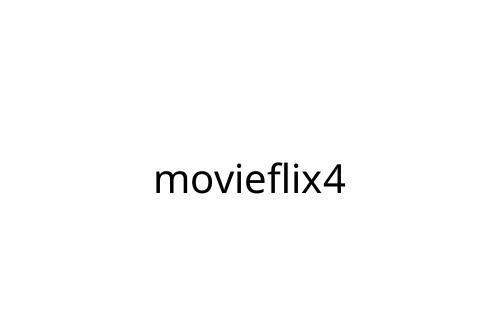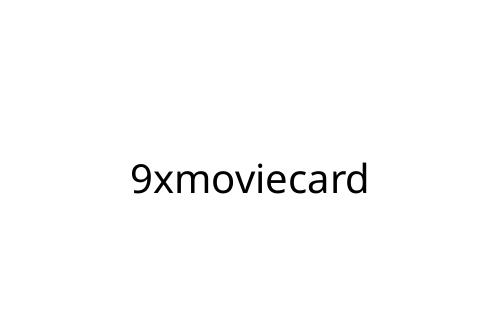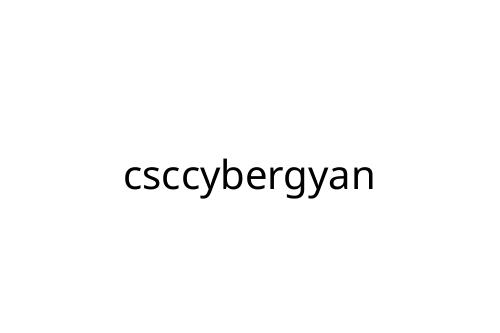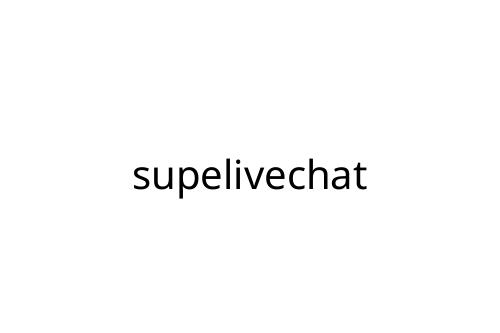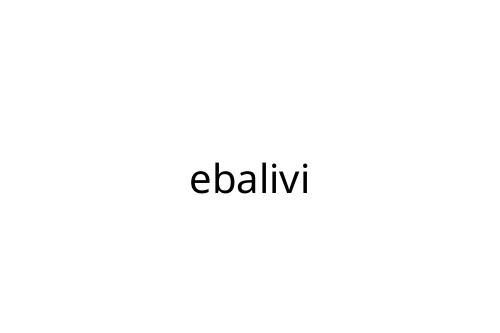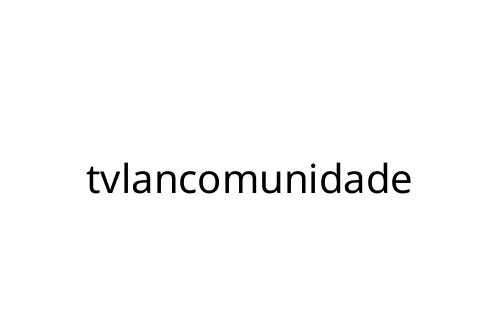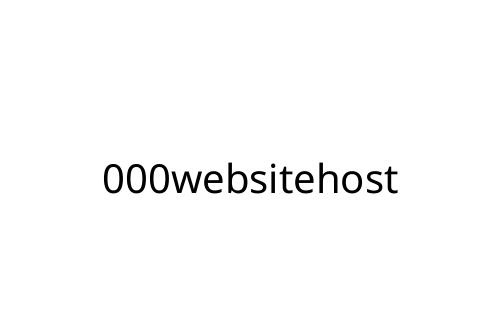10 Essential Tools for Entrepreneurs and Small Businesses
- Every founder needs the right gear.
- The right toolkit can save time, boost productivity, and keep things simple.
- This guide breaks down award-winning tools for entrepreneurs—no fluff, just what works.
Managing Newfound Wealth
Winning a life-changing lottery jackpot is every player’s dream, but few are prepared for what comes next. The sudden influx of wealth can bring excitement but also a wave of challenges. Here’s what often unfolds after the jackpot:
Financial Challenges
Many winners face crucial financial decisions:
- Taxes and Legal Considerations
- A significant portion of the winnings often goes to taxes. Without planning, this can lead to legal issues.
- Investment Decisions
- Securing future investments can ensure long-term wealth but requires careful strategy.
- Reckless Spending
- Some winners fall into impulsive spending behaviors, depleting their fortune faster than expected.
- Financial Advisors
- Hiring expert advisors can help winners navigate these financial waters.
Lifestyle Changes
New wealth can lead to dramatic lifestyle shifts:
- Luxury Purchases
- Winners frequently indulge in buying luxury homes, exotic cars, and extravagant vacations.
- Social Dynamics
- Friends and distant relatives often resurface, seeking a share of the newfound wealth, leading to complex decisions.
- Privacy Concerns
- Some winners opt for a low-profile life to avoid the attention and pressure that accompany sudden wealth.
Whether they embrace luxury or choose discretion, adjusting to new realities is rarely simple.
Social Impact and Legacy
Beyond personal wealth, some winners choose to use their fortune for broader impacts:
- Charitable Contributions
- Donations to charities and community projects become priorities.
- Educational Support
- Funding scholarships or educational initiatives allows winners to support future generations.
- Business Investments
- Investing in businesses can create jobs and opportunities, contributing to economic growth.
Many stories highlight winners funding scholarships or launching nonprofits just as often as tales of financial downfall. How winners handle their newfound riches determines not just their own future but also the legacy they leave behind.
Why the Right Tools Matter
In business, your time is currency. Every extra hour spent on busywork drains your momentum. That’s why smart entrepreneurs turn to tools—not because they’re trendy, but because they multiply what you can get done in a day. The right app for bookkeeping or collaboration isn’t a luxury. It’s a necessity that frees up headspace and trims down mistakes.
Consider the basics: file sharing, project management, seamless payments. Get those right, and you cut out friction that might otherwise grind growth to a halt. But don’t just chase every new gadget that launches. Build your stack from the fundamentals, and layer in those few game-changers that give your venture an edge for 2025 and beyond. Bottom line: tools aren’t magic, but in the hands of a focused founder, they’re the closest thing to it.
Core Productivity Boosters
There’s one universal truth in entrepreneurship: your time is always at a premium. That’s why cutting out friction from your daily workflow is non-negotiable. The right productivity tools don’t just streamline work—they save your sanity.
1. Project Management Software
Forget scribbling lists on sticky notes or getting buried in reply-all email chains. Project management platforms like Trello and Asana are where real productivity happens. They’re dead simple for solo founders, but scale comfortably as your crew grows. Visual boards, shared timelines, task assignments—suddenly everyone’s on the same page, and nothing falls through the cracks. Bonus: easy drag-and-drop means no learning curve. Set your tasks, map out milestones, and get on with actually building your business.
2. Cloud Storage and File Sharing
You need your files wherever you are—period. Cloud tools like Google Drive and Dropbox mean you’ll never lose a crucial contract or your only investor pitch deck. Share folders with clients or collaborators in two clicks. What’s more, automatic backup means even if your laptop croaks, your business doesn’t. Upload, share, access from anywhere: office essential, full stop.
3. Communication Platforms
Endless email chains? Hard pass. Modern teams run on messaging platforms like Slack and Microsoft Teams. Need a fast answer? Ping someone in a dedicated channel. Want to loop in a client? Create a workspace. File sharing, video calls, searchable conversations—it’s all built in. Even if you’re flying solo, these tools are great for client comms and keeping project feedback organized. Bottom line: it’s real-time, it’s organized, and it kills the inbox overload.
Pick these three essentials and you’ve already put hours back in your week. The less time you spend chasing down info, the more time you invest in actually growing the business. Spartan, simple, effective.
1. Project Management Software
Stop trying to remember everything. Trello and Asana are the digital whiteboards that keep your business out of chaos mode. Think of them as command centers—simple drag-and-drop boards or task lists where you track what needs doing, assign responsibilities, and see progress at a glance. Whether you’re going solo or running a small team, project management software means no more sifting through email chains to remember what’s next. These tools are lean, customizable, and cloud-based, so your to-dos follow you anywhere. Bonus: they scale as you grow, from side hustle to legit company. No founder with ambitions should try to build without this foundation.
2. Cloud Storage and File Sharing
Google Drive, Dropbox—two names you’ll hear in just about every founder chat, and for good reason. These cloud storage heavyweights are the new “office supply closet.” Share docs, slides, and spreadsheets with one click. Back up the files you can’t afford to lose (looking at you, pitch deck v16). Want to work from your kitchen table, your car, or Bali? Grab your files from anywhere.
Forget version confusion or losing attachments in a five-mile-long email thread. Set permissions so the right people see the right docs—no mess, no stress. Bonus: built-in search means you’ll never have to say “Where did I save that?” again. For teams, solo hustlers, and anyone with a laptop, cloud storage isn’t optional—it’s essential.
What Happens After Winning Millions?
Winning a life-changing lottery jackpot is every player’s dream, but few are prepared for what comes next. The sudden influx of wealth can bring excitement, but also a wave of challenges. Many winners find themselves overwhelmed by financial decisions, from managing taxes to making smart investments. Some handle it well, while others struggle with reckless spending that drains their fortune faster than expected.
The Financial Reality of Winning
Many winners face critical financial decisions almost immediately:
- Taxes and Legal Issues – A large chunk of the winnings often goes to taxes, and failing to plan can lead to legal troubles.
- Investing vs. Spending – Some winners hire financial advisors to ensure long-term security, while others spend impulsively without a plan.
- Budgeting for the Future – Without proper money management, even the biggest jackpots can disappear quickly.
A Lifestyle Overhaul
A sudden fortune changes life in more ways than one:
- Luxury Purchases – Mansions, sports cars, and extravagant vacations become instantly affordable.
- Social Pressure – Long-lost friends and distant relatives often reappear, expecting a share of the winnings.
- Privacy Challenges – Some winners struggle with unwanted media attention and public scrutiny.
While some winners embrace their new wealth openly, others choose to live discreetly to avoid pressure and expectations.
Giving Back and Creating a Legacy
For some, wealth is not just about personal luxury—it’s an opportunity to make a difference. Many winners choose to:
- Donate to charities and community projects
- Fund scholarships or support education initiatives
- Invest in businesses that create jobs and opportunities
Some lottery winners go from players to philanthropists, proving that wealth can be used to leave a lasting impact. However, not all stories end positively—many who fail to manage their winnings properly find themselves bankrupt within years.
Finance and Admin Essentials
Let’s get real: even the most visionary founders flinch at paperwork. But if you ignore the numbers, your business won’t survive long enough to see those big dreams pay off. That’s why reliable finance and admin tools are non-negotiable—think less busywork, more brainspace.
4. Accounting & Invoicing Tools
QuickBooks, FreshBooks, and similar apps do more than keep your accountant happy. They automate the grunt work: invoicing, expense tracking, mileage logging. The goal? No more piles of receipts or “where did that money go?” moments. You stay audit-ready and stress-free at tax time. Bonus: many of these platforms integrate with your bank and payment tools, so nothing falls through the cracks.
5. Digital Payment Solutions
Stripe, PayPal, and friends are essential if you want to get paid on time. They process credit cards, ACH transfers, even Apple Pay—whatever your customer prefers. Set up recurring payments, send payment links, track everything in one dashboard. The less friction for your customers, the faster you get paid.
Bottom line: Get your back office on autopilot as much as possible. More time for building the business, less time buried in spreadsheets.
4. Accounting & Invoicing Tools
You started your business for a reason—and juggling spreadsheets probably wasn’t it. That’s where tools like QuickBooks and FreshBooks step in. They take the pain out of setting up invoices, chasing payments, and sorting out taxes. No fancy accounting background needed: just plug in your figures and let the software do the heavy lifting.
Automate recurring invoices, get paid faster, and keep an eye on cash flow from your phone if you need to. Need expense tracking? Receipts go in instantly—no more shoeboxes or lost deductions. Come tax time, you’ll thank yourself. End result: fewer headaches, less wasted time, and more energy for building the stuff that actually matters.
For most founders, owning your numbers means sleeping at night. These tools are how you get there.
5. Digital Payment Solutions
Getting paid shouldn’t feel like pulling teeth. Stripe and PayPal are the big hitters here—easy to set up, dead simple for your customers, and they work with just about anything from online shops to client invoices. Need to handle credit cards, one-click checkouts, or recurring payments? Covered. Plus, they wire money into your account fast (no more chasing checks). Security is handled, so you don’t have to sweat PCI compliance. Bottom line: the smoother you make payments, the faster you get paid. Don’t make customers jump through hoops; with these tools, they won’t have to.
Marketing & Outreach Musts
Getting the word out is non-negotiable. You need tools that help you connect, nurture, and stay visible—without eating up half your week. Here’s how to keep your outreach engine purring, even if you’re a one-person show.
6. Social Media Scheduling
No one has time to post in real-time across every channel. Buffer and Hootsuite let you plan your posts a week (or month) in advance, automate the busywork, and keep your brand showing up—even while you sleep. Analyze what works, toss what flops, and stay on top of mentions without living on your phone.
7. Email Marketing Services
Some think email is old-school. They’re wrong. Platforms like Mailchimp and ConvertKit help you build your audience, automate sends, and track engagement. Whether you’re sharing a quick update or running a full-blown campaign, these tools handle segmentation and follow-ups, making sure you’re top-of-mind—without feeling spammy. High ROI, built-in analytics, stupid-simple templates.
Bottom line: marketing shouldn’t feel like climbing Everest. Automate the grind and focus on what brings in customers.
Conclusion
The way winners manage their newfound riches doesn’t just impact their personal futures, but also the legacies they wish to leave behind. Whether indulging in luxury, maintaining a low profile, or giving back to society, each path has its challenges and rewards. Ultimately, navigating the responsibilities of sudden wealth requires careful planning and thoughtful decision-making to prevent a dream come true from turning into a financial nightmare.
What Happens After Winning Millions?
Winning a life-changing lottery jackpot is every player’s dream, but few are prepared for what comes next. The sudden influx of wealth can bring excitement, but also a wave of challenges.
The Financial Reality of Winning
Many winners face critical financial decisions almost immediately:
- Managing Taxes: A significant portion of the winnings is taxed, and without careful planning, winners can face serious financial consequences.
- Hiring Financial Advisors: Some winners choose to bring in experts to help them make smart investment choices that secure their future.
- Risks of Reckless Spending: Impulsive purchases can quickly drain even the largest fortunes.
- Long-term Planning: Without a proper strategy, the dream of endless riches can rapidly turn into a financial nightmare.
A Lifestyle Overhaul
A sudden fortune changes life in more ways than one:
- Luxury Purchases: Mansions, sports cars, and extravagant vacations are common acquisitions.
- Social Dynamics: Friends and distant relatives often emerge, creating tension and difficult choices.
- Privacy Concerns: Some winners adopt low-profile lifestyles to avoid the pressure that comes with sudden wealth.
Giving Back and Creating a Legacy
For some, wealth is not just about personal luxury—it’s an opportunity to make a difference. Many winners choose to:
- Support Charitable Causes: From donating to established charities to starting their own foundations.
- Invest in Community Projects: Funding scholarships or revitalizing neighborhoods.
- Create Business Opportunities: Launch businesses that can have positive social impacts.
The manner in which winners handle their newfound riches determines not just their future but also the legacy they leave behind. While some become philanthropists, others unfortunately face financial downturns due to mismanagement.
Workspace and Planning Power Tools
Even the scrappiest teams need a real foundation. Workspace and planning tools turn big ideas and daily chaos into actual progress. Here’s the lineup every entrepreneur should know:
8. Document Creation & Collaboration
The basics fuel everything. Google Workspace or Microsoft Office Online—take your pick. Both let you hammer out proposals, spreadsheets, and presentations at lightning speed. You get real-time editing, which means you and your co-founder can debate changes in live doc comments instead of in six different emails. You’ll use these on day zero and every day after.
9. Virtual Meeting Platforms
You can’t do business without talking to people, but nobody needs more travel. Zoom and Google Meet do the trick. Quick setup, easy invites. Jump from idea to handshake, no commute required. Bonus: screen share makes demos and remote support painless.
10. Business Planning Resources
Planning isn’t a one-and-done. Whether you like pen-and-paper or digital templates, structured planning tools help you see the gaps and spot the wins. Services with ready-made strategic plans or step-by-step guides take the guesswork out of where to focus next. When priorities shift—and they always do—your plan can shift along with them.
Bottom line: Work gets done faster, cleaner, and with fewer headaches when your workspace and planning tools actually earn their keep. Don’t go fancy—go functional.
8. Document Creation & Collaboration
If you’re still emailing attachments back and forth, stop. Google Workspace and Microsoft Office Online let multiple people work on the same doc or spreadsheet—simultaneously. We’re talking real-time edits, instant comments, tracked changes. No more version confusion, no digging through inboxes for “final_final_v3.” Whether you’re drafting a pitch, building a budget, or hammering out contracts, these platforms mean less chaos, more clarity.
Bonus: the cloud means your team (or just you, on the go) can access everything from anywhere. It’s as close as you get to a universal office for entrepreneurs. If you need to loop in clients or external partners, sharing and permissions are a breeze. For small businesses, this is more than a convenience—it’s an edge.
9. Virtual Meeting Platforms
Remember conference rooms? You can forget them. Today, meetings happen wherever you have WiFi. Zoom and Google Meet have become the gold standard for remote catch-ups, sales pitches, or team huddles. They’re simple, reliable, and your clients already know how to use them. Hit a link, turn on your camera, and you’re “in the room.” Need to record a session or share your screen? Easy as clicking a button. For startups, this isn’t just about convenience—it’s about cutting travel and keeping the pace up. Schedule standing calls or host pop-up brainstorms, no fancy hardware required. Bottom line: if you’re not using a virtual meeting tool, you’re working harder than you need to.
10. Business Planning Resources
Flying blind is a rookie mistake. Every founder needs a blueprint—something you can reference, update, and actually use (not just file away). Business planning tools range from plug-and-play templates like LivePlan to more barebones options like Google Docs paired with a solid step-by-step guide.
Here’s how these tools help: they force you to clarify your market, cash flow, and goals before you spend serious time or money. Most software can walk you through projections, competitor analysis, and pitch deck creation—without the jargon overload. Some even come loaded with sample plans for inspiration (read: shortcuts).
Don’t stress about perfecting your plan. The real win is using these resources to spot blind spots early and pivot with minimal pain. Whether you grab a free template or invest in dedicated planning software, you’ll thank yourself when it’s time to raise funds, pitch, or scale.
Putting Your Toolkit Together
You don’t need a hundred apps or a flashy dashboard to get things moving. Pick a handful of tools that cover your biggest pain points right now and get familiar with them. Startups and small businesses run lean for a reason—fewer moving parts means less breakage.
As your business grows, your toolkit should evolve with it. What’s perfect for a solo founder may feel clunky when you’ve got a team of ten. Revisit your stack every few months. Swap out what isn’t working, double down on what saves you stress and time.
Remember: there’s no prize for having the most logins. The basics—good project management, sturdy cloud storage, easy payments—will get you to product/market fit. Once you’re scaling, smart upgrades and automation are business aids that free you up to focus on real growth. Keep it simple and your workflow will thank you.
More Resources for Ambitious Entrepreneurs
Ready to dig even deeper? Award-winning tools evolve fast, and so do you. Carve out twenty minutes a month to explore new options—think of it as a systems check for your business. For a regularly updated roundup, bookmark Entrepreneur.com’s tools guide. It’s a goldmine for the latest launches, honest reviews, and pro tips straight from founders.
Remember: there’s no one-size-fits-all stack. What’s perfect today might be overkill (or underpowered) in a year. If something’s not saving you time or making money easier, cut it loose and test something else. The best entrepreneurs are always on the hunt, so stay curious and keep tweaking. The right tool at the right time can be a game-changer.
Each lottery winner’s journey post-jackpot is unique, with outcomes ranging from financial success to unforeseen challenges. The ability to manage wealth responsibly not only impacts their own lives but can influence a broader legacy. Understanding potential pitfalls and opportunities can better prepare future winners for the transformative experience of a sudden financial windfall.













































































































































































































































